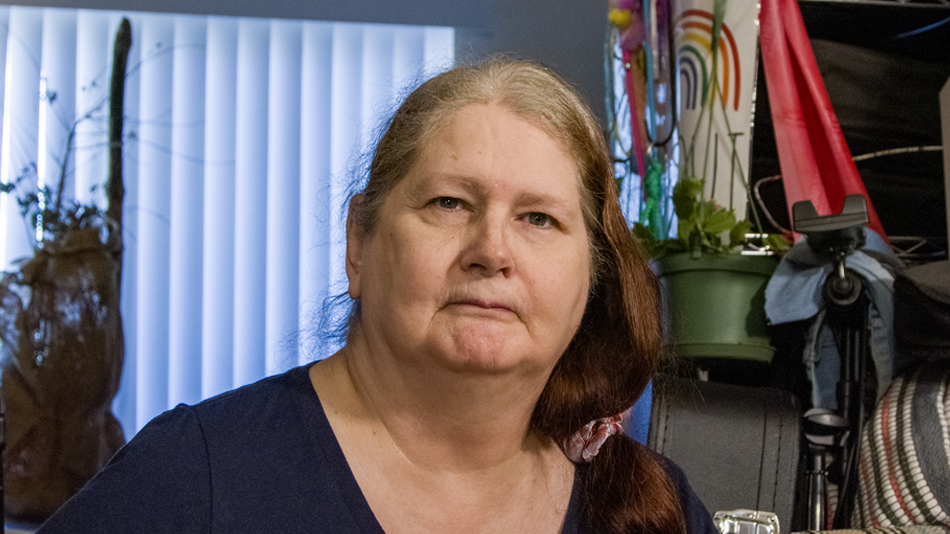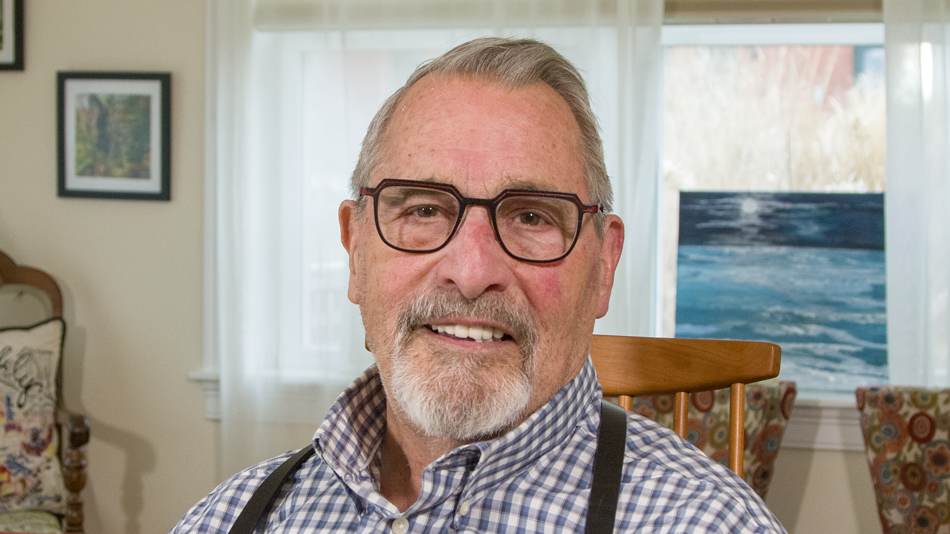My name is Janet Hart and I’m from San Francisco.
I grew up within the gay community. My mom came out when I was about 5 years old. My sister was probably about a year old. And that’s about the time obviously my parents divorced.
There was a time when I remember at a friend who had told me she wasn’t allowed to come to my house because my mom was gay. Her mom basically said she wouldn’t be allowed to come to my house, which was very strange and obviously it hurt me quite a bit.
I have a very specific memory of someone, my mom’s basically, my mom’s best friend Orville, who had such an incredible amount of charm and an incredible sense of humor. I remember his love of Betty Boop quite clearly. He had so much paraphernalia, he probably could’ve started his own Betty Boop museum.
So in 1986, I ended up graduating from high school and went to college. While I was away at college, Orville started to become more and more ill and his family didn’t want to have anything to do with him, which still completely boggles my mind. Orville needed someone to care for him because no one else was going to, so typically, my mom stepped in and took him in and converted or turned a granny unit of our house into a little studio apartment for him and and cared for him and made sure that, you know, he got medication that he needed and the care that he needed.
I’d been gone for several months and came back for Thanksgiving. When I came back, I remember really clearly seeing Orville for the first time – I hadn’t seen him obviously in several months – and being so completely shocked by his appearance that I was almost unable to talk. I tried to hide it, but he was so gaunt and so emaciated. I mean, basically had that wasting syndrome that is associated with with full blown AIDS and really advanced AIDS. I tried to hold it together. Later in the evening when Orville had gone back to his little studio, I broke down with my mom because he had changed so dramatically.
Orville being Orville and being the charming, amazing sense of humor-filled person that he was, you know, he would walk around, you know, that whole weekend, he walked around, his little tiny emaciated body, with these giant bear claw slippers. I think they were very popular in the eighties, I don’t know. But, you know, I mean literally they were like this huge on his feet. He’d be telling jokes and you know trying to lift everyone up, right, like he did before he was sick and of course his personality didn’t change. He was still the same wonderful, funny and charming guy that he always had been.
So when I went back to college after that experience, I changed my major to biology. I really wanted to work toward some sort of cure or vaccine for HIV and eventually went on to get my masters my PhD in that field.
Another little thing I ended up doing to honor his memory was making a panel for him for the Names Project, for the AIDS quilt, back in the early nineties. It’s definitely a testament to how much I loved him to actually put together something with a needle and thread, which is not my forte at all. Of course it had to have big, huge Betty Boop face right in the center.
I think it’s important for the LGBT community to know that they are not alone, that there are people that are part of their village that may not have the same sexuality that they have, but are absolute allies and understand a lot of what they’ve been through. And I think, especially for young people who are in more vulnerable situations and who might feel more alone, I think it’s incredibly important for people especially in these days and in this day and age to step up and make sure that we support each other, and that we, you know, defend each other’s basic human rights.








Share